CHC30712 Early Childhood Care Assignment: Sleep, Health, and Safety
VerifiedAdded on 2023/05/28
|5
|1201
|105
Homework Assignment
AI Summary
This assignment addresses key aspects of early childhood care, providing insightful responses to several questions. The student explores how caregivers should gather information from parents regarding a toddler's sleep habits, including sleep duration, routine, and environmental factors like noise and light. The assignment also details the student's experience in implementing routines in a childcare setting, emphasizing the importance of fixed schedules for eating, sleeping, and hygiene. Furthermore, the document outlines the necessary provisions for breastfeeding mothers in a childcare center, including a private, comfortable space and access to a refrigerator for milk storage. It highlights the significance of maintaining a child's immunization status and provides guidelines for observing and responding to signs of illness and injury, as well as communicating with families. Finally, the assignment offers strategies for discussing sun safety with children aged 0-5 years, including the use of sunscreen, protective clothing, and staying in the shade during peak UV radiation hours. The document is well-researched and referenced, drawing on studies and guidelines related to early childhood development and care.
1 out of 5
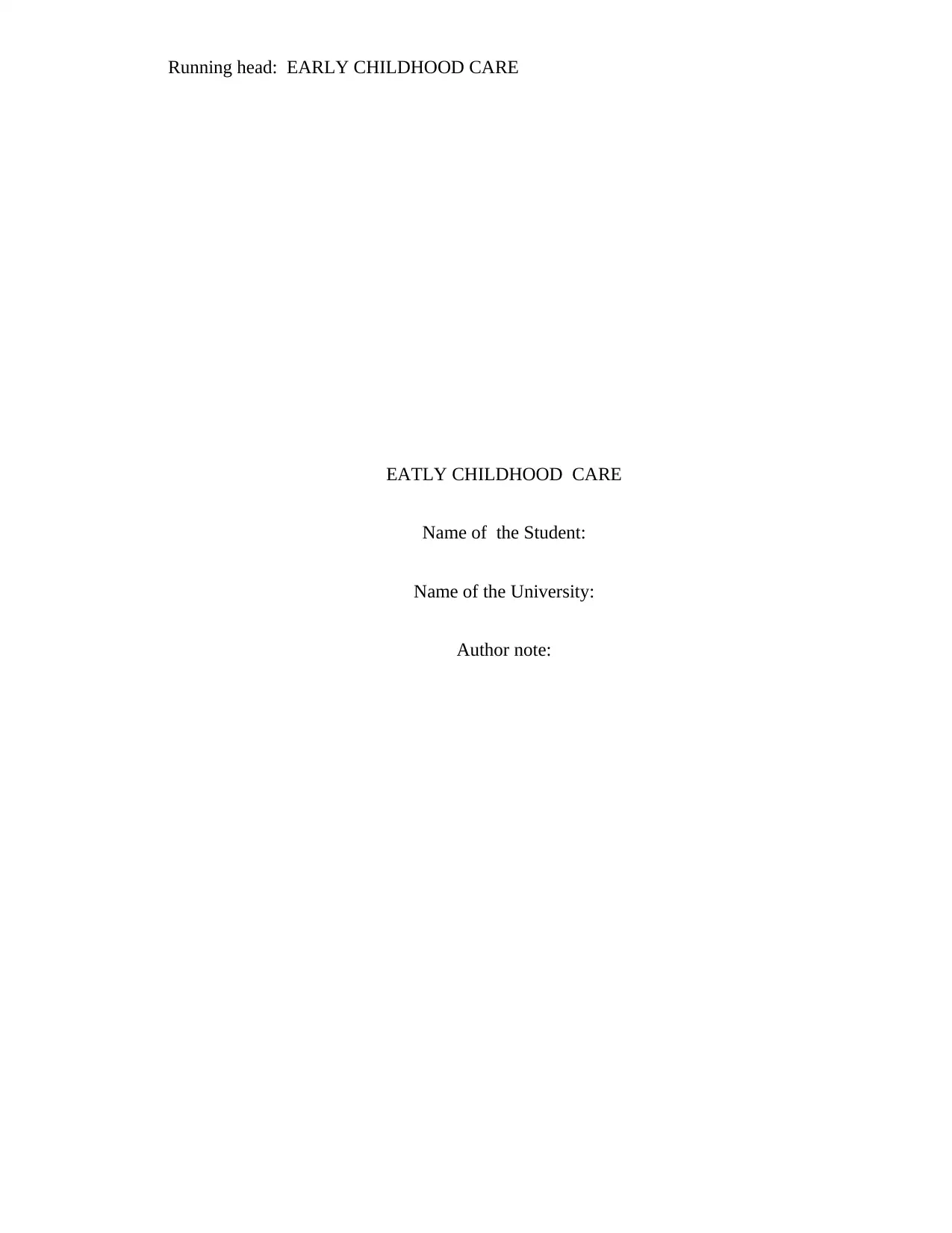
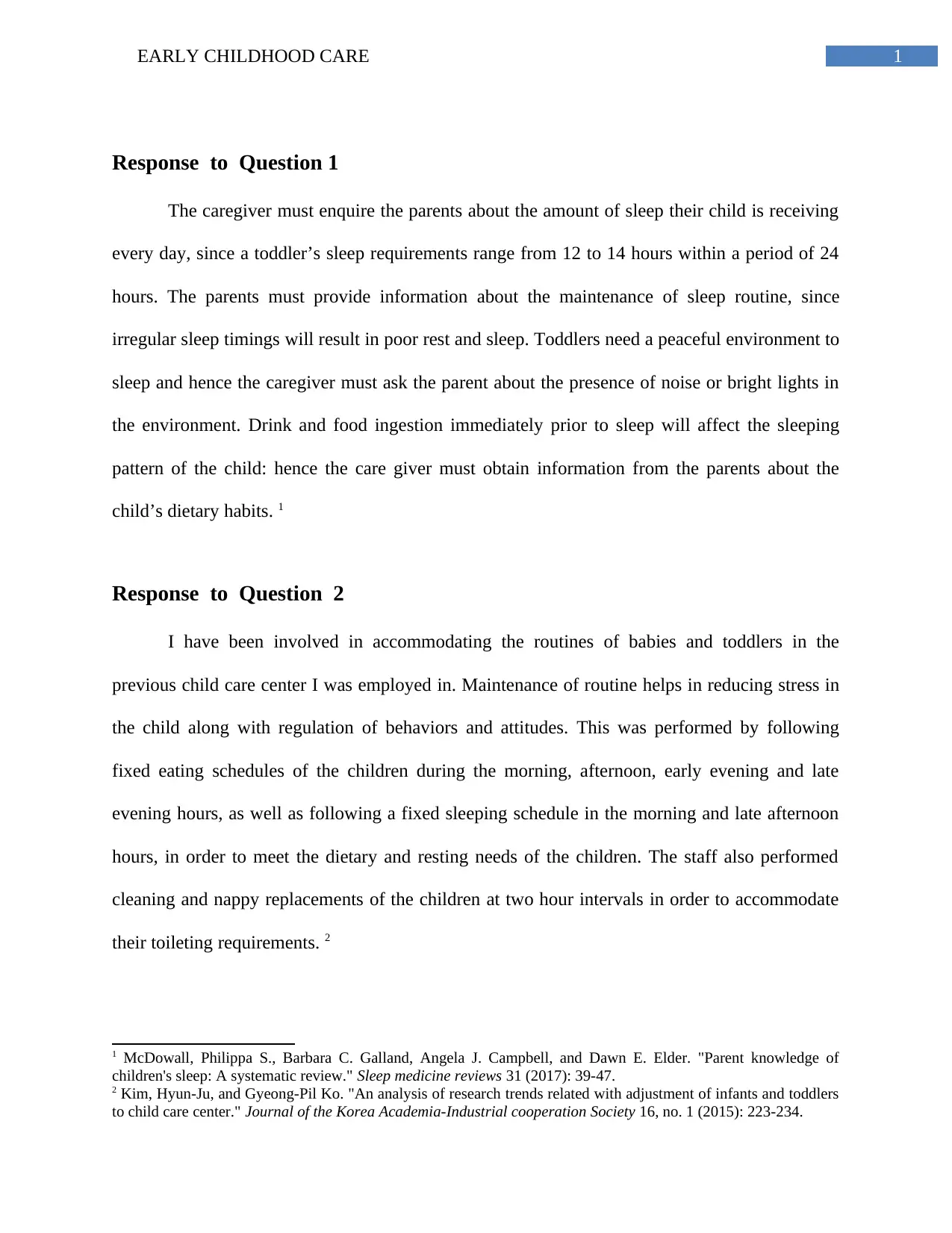
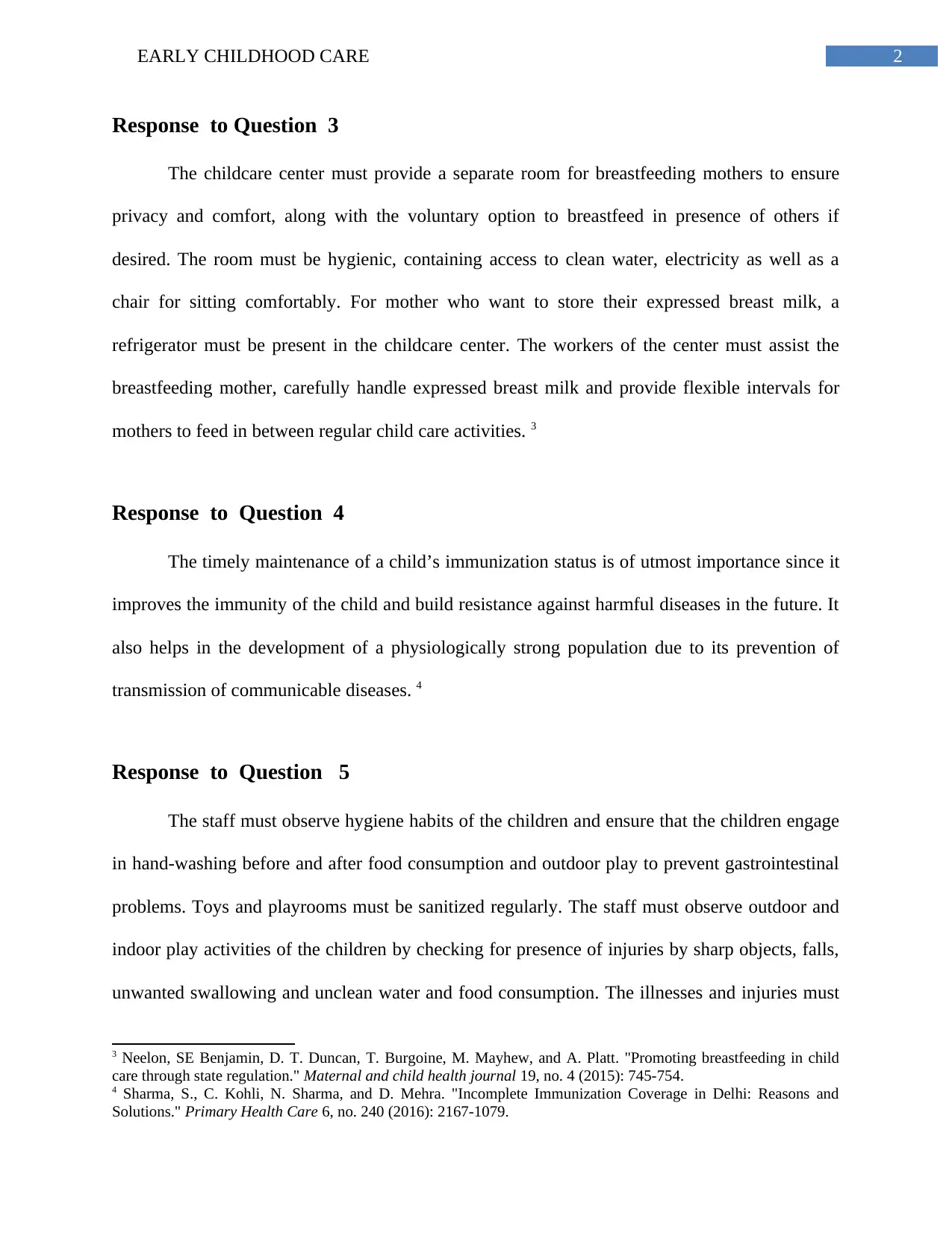

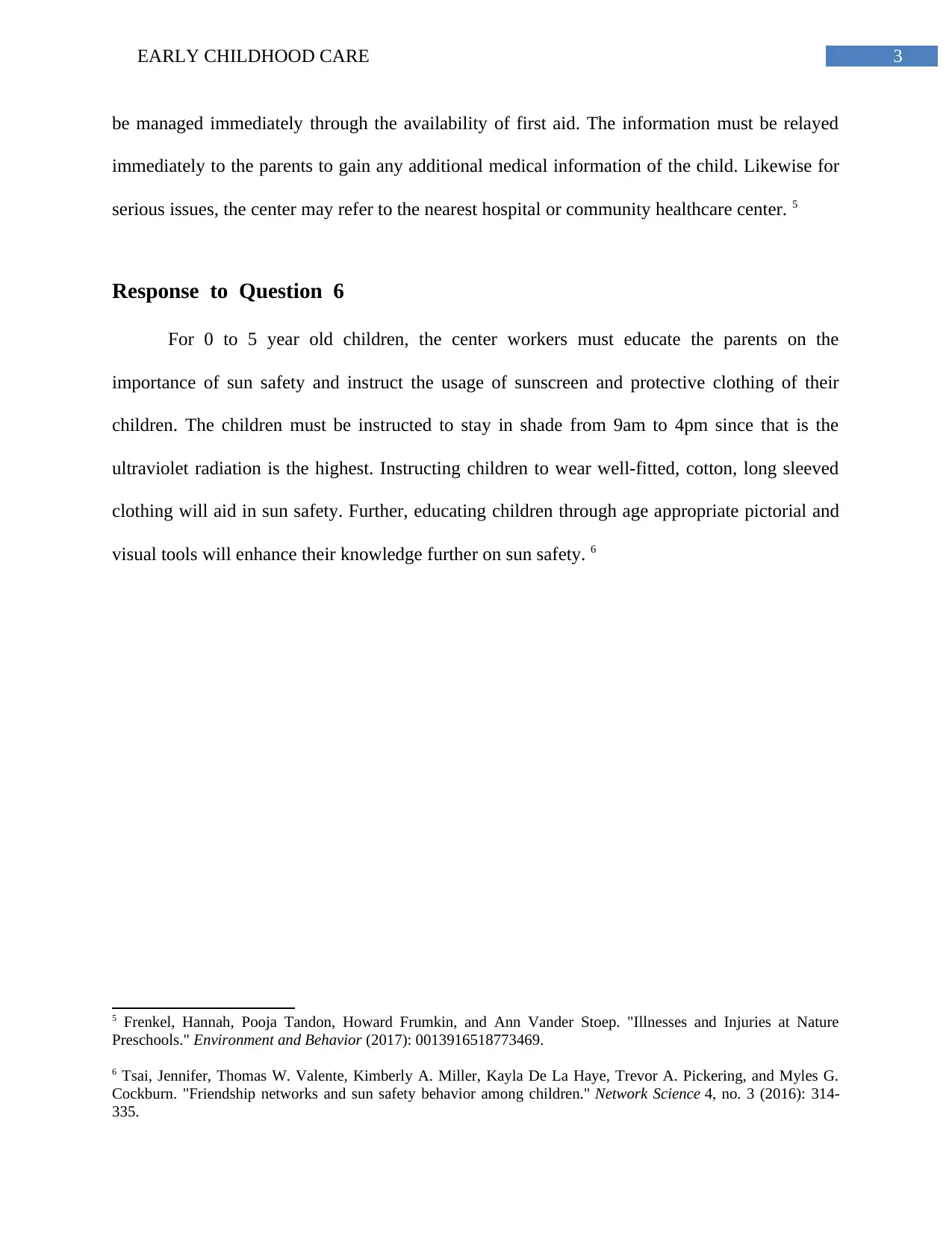
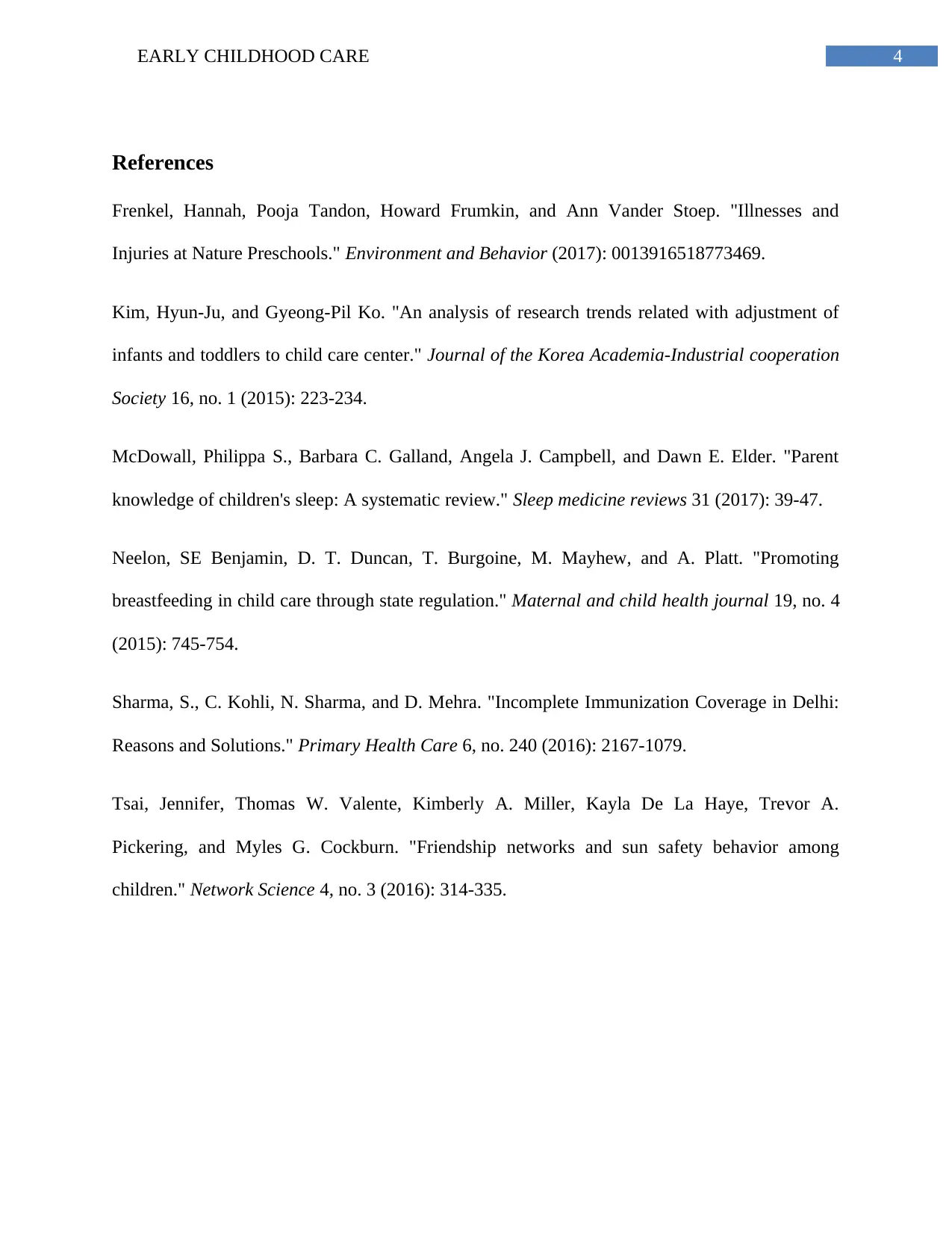






![[object Object]](/_next/static/media/star-bottom.7253800d.svg)